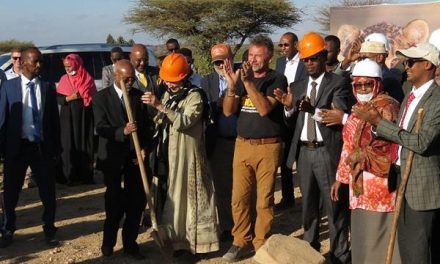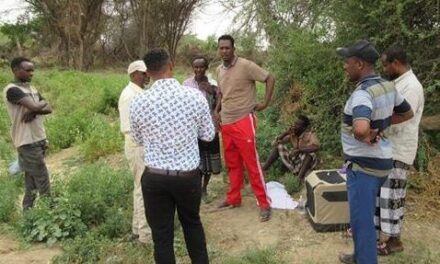
Intergrated global governance key to combating climate change

Oliver Ruppel, professor in Public and International Law at the University of Stellenbosch, addressed a local audience at his book launch at the Namibia Scientific Society in Windhoek last week.
According to noted academic and professor of Public and International Law at the University of Stellenbosch, Prof. Oliver Ruppel, a strong legal framework embedded in more effective global institutions is required to combat climate change.
“As there is no universal solution to environmental climate change, coordination, participation and cooperation are critical for jointly achieving internationally agreed-upon goals and targets while also addressing national capacity deficits,” he informed the Economist.
Prof. Ruppel,who is also a Coordinating Lead Author (CLA) for Africa of the Intergovernmental Panel on Climate Change (IPCC), recently co-edited a series of books titled “Climate Change: International Law and Global Governance” Volumes 1 and 2.
Volume 1 assesses the most pressing impacts of climate change on various international law regimes with the main focus on judicial review and international climate change litigation, international climate change law as a new international law discipline as well as the law of the sea and sea level rise.
Volume 2 reflects on the United Nations Framework Convention on Climate Change (UNFCC) and the impact of climate change on international diplomacy and global governance.
This is highlighted from various transdisciplinary and geopolitical perspectives with a special focus on the challenges of strengthening national and international climate change policy and sustainable development.
Prof. Ruppel is of the opinion that international law and global governance, which are traditionally viewed as separate academic disciplines, need to become part of a more integrated, coherent, iter-disciplinary and holistic interplay, where the two terms eventually manage to get a grip on arguably the most significant challenge of modern time – climate change.
He added that the complexity of climate change will require the involvement of a diverse range of institutions.”
It is expected that climate change will generate varied and significant impacts on national, regional and global economies; and it is also not unlikely that this will result in increased climate induced migration movements, as well as local and international conflict,” he said.
Despite Africa’s relatively low contribution to the world’s total greenhouse gas emissions, it is one of the most vulnerable continents to climate change. Africa emits far less carbon than other continents.
Africa’s carbon dioxide emissions per year is only 3.6% of the global total. Furthermore, the continent accounts for only 3% of world energy consumption, and the average energy consumption of an African inhabitant is six times less than that recorded for individual inhabitants across the populations of the world.
“Climate change, especially in Africa, has the potential to impose pressures on the various aspects of human security.
It is a “threat multiplier” that has fundamental implications for weather, settlements, infrastructure, food security, livelihoods and development.
Competition over scarce water and land, exacerbated by regional changes in climate, was already a key factor in local conflicts,” Prof. Ruppel suggests.
He said although climate change is becoming an increasingly threatening reality, for Africa it is still one which is globally often too narrowly perceived.
He said more effective regulation may be needed to help prevent the situation from getting worse.
However, according to Prof. Ruppel, many African governments have progressed in addressing climate change and related issues with the African Union (AU) succeeding in presenting an increasingly cohesive African position on climate change.
“In fact, AU policy pathways and related developments, accommodating national constitutional and legislative stipulations as well as climate change policy developments, is critical because these are the linchpin between global, continental and domestic action,”
he said adding that when countries enact policies that are responsive to climate change, it is more likely than not that investment will follow, which in turn can open opportunities for development and political space for international cooperation.












































